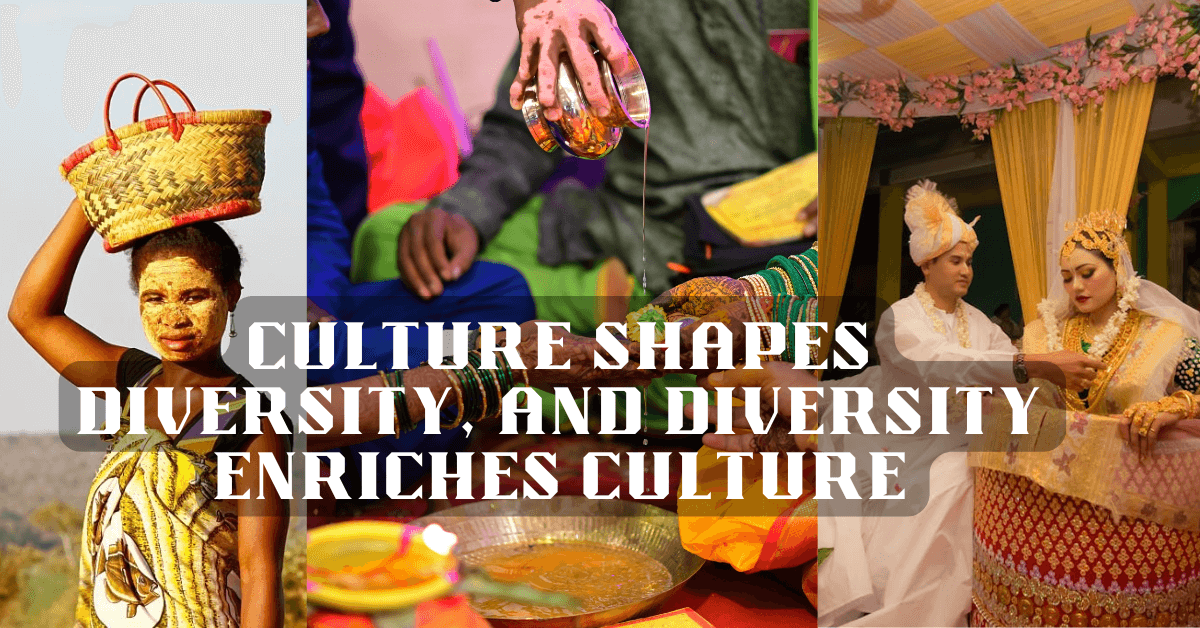Traveling to a new place often feels like stepping into a whole new world, full of stunning landscapes, delicious food, and vibrant cultures. But have you ever considered what truly makes that experience unforgettable? It’s not just the sights; it’s the people and the local customs that shape your journey. These cultural practices, from greetings to dining habits, can make or break your travel experience.
Imagine visiting a remote village and sharing a laugh with a local over a traditional meal, or participating in a sacred festival that you would have missed if you hadn’t learned about the local customs beforehand. Whether you’re on a business trip or exploring for pleasure, understanding local etiquette helps you avoid awkward situations, earn respect, and immerse yourself in the culture.
In this article, we’ll explore why respecting local customs, like the Fady in Madagascar or greeting rituals in Japan, is essential. We’ll also offer practical tips for researching and embracing these traditions, ensuring your travels are both enriching and respectful. So, before you pack your bags, let’s dive into why understanding local customs can elevate your adventure into something truly extraordinary!
Local customs are the unique behaviors, etiquettes, and practices that define a culture. These customs are deeply rooted in history, beliefs, and traditions, reflecting a community’s values and way of life. Understanding these customs goes beyond just avoiding cultural faux pas; it’s about showing respect, making connections, and creating more meaningful travel experiences.
Examples of Universal Local Customs
Local customs can vary greatly across the world, and understanding these differences can elevate your travel experience:
- Bowing in Japan: A bow is more than just a greeting; it’s a sign of respect. In Japan, the depth and duration of a bow can convey everything from a simple hello to a deep apology, depending on the situation. To navigate cultural nuances while traveling in Japan, consider booking a guided cultural tour through platforms like Tiqets, where experts can help you understand and appreciate local customs.
- Tipping Etiquette: In the U.S., tipping is expected in most service industries, but in many European countries, it’s not as common or is already included in the bill. Before your trip, resources like Kiwi.com can assist with destination-specific guides to avoid awkward moments related to tipping or other regional norms.
- Removing Shoes Indoors: A common practice in Asia and Scandinavia, removing shoes before entering a home is seen as a sign of cleanliness and respect for the home.
Highlight: Fady in Madagascar
In Madagascar, one of the most fascinating and important local customs is the concept of “Fady,” which refers to a set of cultural taboos that are closely tied to spirituality and respect for ancestors. These customs vary across different regions, making them an essential part of understanding Malagasy culture.
Examples of Fady:
- Sacred Animals: Certain animals, such as owls and crocodiles, are considered sacred, and locals avoid harming them.
- Whistling at Night: In some areas, whistling at night is believed to attract evil spirits.
- Pork Taboos: In specific locations, it’s customary to avoid eating henakisoa (pork) before visiting certain beaches, as it’s seen as disrespectful to local traditions.
Respecting Fady not only demonstrates cultural sensitivity but also helps foster goodwill with the Malagasy people. Travelers who adhere to these customs are often welcomed with warmth, invited to local gatherings, and given unique opportunities to witness sacred rituals and ceremonies.
By understanding and respecting local customs like Fady, travelers can deepen their cultural immersion, avoid misunderstandings, and make the most out of their experience. Understanding local customs isn’t just about being polite, it’s the key to truly experiencing the heart of a culture.
The Impact of Ignoring Local Customs
Failing to respect local customs can lead to unintended consequences, affecting your travel experience in ways that are both uncomfortable and avoidable. Whether it’s offending locals, breaking rules, or feeling the sting of embarrassment, ignoring cultural norms can quickly turn an exciting trip into a stressful one. Understanding the impact of these missteps highlights why respecting local customs is essential for every traveler.
Social Consequences of Ignoring Local Customs
Ignoring local customs can lead to significant social friction. For example, in Madagascar, disregarding the “Fady”, traditional taboos can unintentionally offend locals, causing tension and awkwardness in interactions. In other parts of the world, even simple gestures like the thumbs-up, which is a sign of approval in many cultures, may be perceived as offensive in some Middle Eastern countries. These misunderstandings can create barriers between travelers and locals, making social connections difficult and potentially hostile.
Cultural Faux Pas to Avoid
When travelers fail to respect the cultural norms of a destination, they risk making a cultural faux pas. These missteps can include inappropriate behavior, such as speaking too loudly in quiet spaces, disrespecting sacred sites, or misunderstanding traditional greetings. For instance, failing to bow properly in Japan or tipping incorrectly in certain European countries can give off a sense of disrespect, leaving a negative impression of the traveler. These customs reflect the values of the community, and overlooking them can damage relationships, leaving a lasting negative image of the traveler.
Economic Consequences
Disregarding local customs can also lead to economic consequences. Many tourist attractions have specific rules that reflect the culture and values of the region. For example, wearing inappropriate clothing at religious or cultural sites may result in being fined or denied access to these places. In some cases, not following proper customs can even lead to wasted money on activities or experiences that are no longer available due to a lack of respect for local traditions.
Emotional Fallout
The emotional impact of cultural missteps can be significant. Travelers often feel regret or embarrassment after realizing they’ve unknowingly violated a cultural norm. This can lead to lingering discomfort, overshadowing the excitement of the trip. Such emotional fallout may make travelers more self-conscious or reluctant to engage with locals, ultimately limiting the richness of their experience. On the other hand, respecting local customs not only avoids these negative feelings but also fosters greater personal satisfaction and emotional fulfillment from the trip.
Benefits of Understanding and Respecting Local Customs
Understanding and respecting local customs can elevate your travel experience in ways that go beyond sightseeing. When you immerse yourself in the culture of a place, you open the door to authentic, life-changing experiences. By respecting local customs, you’re not just observing; you’re engaging in meaningful ways with the people and traditions that define a destination. For example, in Madagascar, understanding the concept of “Fady”, sacred cultural taboos can lead to opportunities to participate in local ceremonies, offering you an insight into the heart of the community.
- Cultural Immersion:
By learning and respecting local customs, you dive deeper into the culture, gaining access to experiences that many tourists miss. It’s one thing to visit a place, but it’s another to truly understand its traditions, which can lead to unique encounters, like joining in a local dance, eating traditional meals, or witnessing cultural celebrations that would otherwise be hidden. - Building Relationships:
Respecting local customs opens the door to genuine connections with people. Travelers often share heartwarming stories about being invited into local homes, enjoying meals, and forming bonds that transcend cultural boundaries. These friendships, built on mutual respect, can last long after the trip ends, enriching your life in ways you never expected. Imagine being welcomed into a local celebration and sharing stories with people who are eager to share their culture with you. - Conflict Avoidance:
Every culture has its own set of rules and expectations. Being unaware of these can result in awkward situations or even unintended offense. By taking the time to learn about and respect local customs, you reduce the risk of creating tension. This leads to smoother interactions and deeper understanding, allowing you to navigate the complexities of different cultural norms with ease. - Enhanced Travel Memories:
The memories of your travels are often made in those unexpected moments of cultural exchange. Whether it’s participating in a local festival, respecting a local tradition, or simply sharing a meal with a family, these experiences become the highlights of your journey. They transform your travels from ordinary trips into unforgettable adventures that are filled with personal connections and rich cultural experiences.
In short, understanding and respecting local customs doesn’t just make your travel experience more enjoyable, it transforms it. You open the door to cultural immersion, new friendships, and enriching memories. By embracing these customs, you not only enhance your trip but gain a deeper connection with the places you visit and the people you meet.
How to Research Local Customs Before Traveling
To truly immerse yourself in the culture of the places you visit, it’s crucial to research local customs ahead of time. This preparation ensures that you’re aware of the unique traditions, taboos, and etiquette you might encounter, enabling you to navigate unfamiliar cultures with confidence and respect. Here are some effective ways to research local customs before you go:
Online Resources
The internet is a treasure trove of information when it comes to researching local customs. Travel blogs, forums, and government websites offer valuable insights into the customs of your destination. Websites like TripAdvisor or Reddit feature firsthand experiences from other travelers who’ve been in your shoes and can give you practical advice on what to expect. For instance, in my blog’s Madagascar-focused content, I cover the importance of respecting Fady, a set of cultural taboos in Madagascar that every traveler should be aware of. Online travel communities often provide real-world examples and tips that guide you in the right direction.
Books and Media
Travel books, especially those from established publishers like Lonely Planet, often contain comprehensive sections on local etiquette and customs. These guides can help you understand what’s expected of you as a visitor, whether it’s the way to greet people or how to behave at sacred sites.
In addition to books, culturally focused podcasts and documentaries can provide a deeper understanding of the customs in the places you’ll visit. For example, documentaries on Malagasy culture or podcasts that interview locals can offer valuable context about why certain customs, like Fady, exist. This knowledge enhances your respect for the culture and deepens your travel experience.
Ask the Locals
Sometimes, the best way to learn about local customs is to ask. Platforms like Facebook and Reddit host active travel groups where you can ask for tips directly from people who live in or have visited the area. These online communities are often more than willing to share advice on how to avoid common cultural mistakes. You might find out something as specific as whether or not it’s appropriate to tip in a certain country or how to approach a traditional ceremony.
Cultural Apps and Tools
If you’re short on time or want a quick reference, apps like TripLingo and Culture Compass can provide instant etiquette insights for the country you’re visiting. These apps typically offer language tools, cultural tips, and even real-time translations, making it easier to navigate unfamiliar social situations.
Fady Example
Before traveling to Madagascar, I always recommend researching Fady—the spiritual taboos that are integral to the Malagasy people’s culture. In my previous blog post, “Best Places to Visit in Madagascar“, I highlighted specific Fady to avoid, such as not eating henakisoa (pork) before visiting certain beaches. By understanding these customs ahead of time, you’ll avoid unintentionally disrespecting local traditions, creating a smoother and more enriching travel experience.
Research is key to making the most of your travel experience. Whether through online resources, books, local advice, or apps, taking the time to understand local customs before you arrive can help you avoid common pitfalls and immerse yourself in the culture of your destination. In addition to cultural preparation, ensure you’re equipped for unexpected challenges with reliable travel insurance like EKTA, which offers quick, comprehensive coverage to protect you during your adventures.
Practical Tips for Respecting Local Customs
Understanding and respecting local customs is essential for any travel experience, but putting that knowledge into practice can sometimes feel challenging, especially in unfamiliar cultures. By following these practical tips, you can navigate different customs with ease and confidence, ultimately enhancing your overall travel experience.
Observe Before Acting:
When visiting a new place, the best way to start respecting local customs is by observing how locals behave in public spaces. Pay attention to their gestures, greetings, and interactions. Mimicking these actions shows that you respect their way of life and helps you blend in with the community.
Ask Questions:
If you’re ever unsure about something, don’t hesitate to ask questions. Approach locals with genuine curiosity and a friendly smile. People often appreciate when travelers show interest in understanding their culture, and asking questions is a great way to make deeper connections.
Be Open to Change:
You may encounter customs that differ significantly from your own habits. Embrace these differences with an open mind. Remember, it’s okay to make mistakes. If you inadvertently offend someone or misstep in a custom, acknowledge it graciously and be open to learning from the experience. People will appreciate your willingness to adapt.
Acknowledge Mistakes:
If you accidentally break a custom or offend someone, it’s important to acknowledge your mistake and apologize humbly. This shows respect for their culture and helps mend any misunderstandings. Most locals will appreciate your sincerity and understand that cultural differences can lead to unintentional missteps. To further safeguard your travel experience, having reliable travel insurance like EKTA can provide peace of mind, ensuring you’re covered in case any unexpected situations arise during your journey.
Leverage Language Basics:
Learning a few basics of the local language can significantly enhance your interactions. Simple phrases like “Thank you” or “Sorry” can make a huge difference. Using even a word or two shows respect for the local culture and opens doors to deeper connections and friendships.
Stories of Success: Travelers Who Embraced Local Customs
Embracing local customs can transform your travel experience by creating deeper connections and enriching memories. Here are three inspiring stories of travelers who respected local traditions and reaped the rewards:
Case Study 1: A Traveler in Japan Learning to Bow Properly
Travelers in Japan often discover that bowing is not just a polite gesture but a deep cultural expression of respect. One such traveler learned the proper way to bow and, in doing so, earned the admiration of locals. This simple act of respect opened the door to meaningful connections and lasting friendships. By understanding and practicing this custom, the traveler was able to engage with Japanese culture in a way that went beyond a typical tourist experience.
Case Study 2: A Tourist in Madagascar Adhering to “Fady”
In Madagascar, a traveler encountered the cultural practice of “Fady,” a set of taboos that includes certain food restrictions, such as the prohibition of eating pork in specific areas. By respecting these traditions, the traveler was welcomed not as an outsider, but as a cherished guest. The experience highlighted the deep connection between culture and the traveler’s ability to engage authentically with the local community. For travelers exploring culturally rich destinations like Madagascar, having reliable travel insurance can ensure a worry-free journey, offering support if unexpected situations arise during your stay.
Case Study 3: A Backpacker in Italy Gaining Acceptance by Following Dining Etiquette
While traveling through Italy, a backpacker discovered that dining etiquette plays a significant role in social interactions. One such custom is avoiding cappuccino after meals, a practice that reflects the Italian approach to mealtime. By following this simple rule, the traveler earned the respect of locals, shared authentic meals with Italian families, and immersed himself in the warmth of their hospitality.
As we wrap up, it’s clear that understanding and respecting local customs is essential for any traveler. Every destination has unique traditions, like “Fady” in Madagascar, which highlight the deep cultural values and beliefs of its people. By honoring these traditions, you open the door to new friendships, unforgettable experiences, and a richer travel journey.
So, as you plan your next adventure, take the time to learn the customs of the places you visit. Immerse yourself in the local culture, ask questions, and embrace new practices. Doing so will not only transform your travels but also help you build meaningful connections and gain a broader understanding of the world.
Remember, curiosity is the key to truly experiencing the world. Happy travels!




